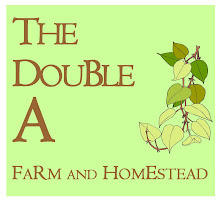So I recently read Barbara
Kingsolver's memoir/political soapbox piece
Animal, Vegetable, Miracle: A Year of Food Life. It's mostly about her family's adventures attempting to eat locally for one year (everything from killing chickens to canning tomatoes to raising turkeys). However, she also includes a lot of historical information on farming and
foodways in the U.S. (one of my main interests) and also a lot of information on farm industry politics and how we're basically made to eat things that the government manufactures and markets to us as our only options.
For those of you unaware, there is a huge movement to eat locally going on right now. It's mostly for yuppies. But it basically means that you attempt to only eat things that are grown and produced within, say, 100 miles of where you live. I never understood why this was popular...I thought that maybe it was a chance to give local farmers business, maintain a strong identity with the community around you through food, etc. However,
Kingsolver shed light on deeper, very political reasons why it might be a good idea to eat locally: it's all about the oil.
Ok, so say you're making a pizza. You get flour, tomatoes, sausage, onions, mushrooms and olives. And cheese. For dessert, you have kiwi. And the flour comes from Vermont (if it's King Aurthur, it will), the tomatoes come from California (because it's November and you'd be lucky to find even a decent looking California tomato in the store right now), the pig for your sausage comes from a huge farm in like Iowa where the animals are pumped with antibiotics, same with the milk for your cheese. Do you see where I'm going? All of this has to be trucked to your grocery store for you to buy and eat. Not only that, it has to be hauled in a refrigerated truck. That pizza is basically guzzling oil and single
handedly fueling both the war in Iraq and or current environmental crisis. Your kiwi alone had to travel all the way from New Zealand to get on your plate. By choosing to be aware of that, and maybe even do something about it (like buy at least part of the ingredients locally or choose a more season-appropriate meal that is easier to locally produce) you are making a very large political statement, and actually doing something constructive to help the situation.
Kingsolver pumped her book with a lot of facts and figures, but one really stood out to me: "If every U.S. citizen ate just one meal a week (any meal) composed of locally and organically raised meats and produce, we would reduce our country's oil consumption by over 1.1 million barrels of oil
every week" (5).
Barrels! So like, rather than lamenting over the fact that you can't help the environment by affording a hybrid vehicle, think about the barrels of oil you're sticking into your mouth and how simple things like going to a farmers market, buying local eggs, milk, and cheese, and maybe even finding a local meat farm can help.
I wouldn't say that I read her book and have become a fanatic. I just went shopping and bought things from all around the country. But the point is, I looked at the labels and consciously registered where all of my food is coming from for maybe the first time ever. The book just made me think about how I eat, where my food is coming from, and what I do and don't already do in terms of local eating. I do make my own bread (yet my flour still comes from Vermont), I grow my own bean sprouts. I go to farmers markets during the season. I get my coffee from Kenya and have my mom bring it with her when she comes to the states. There is a lot more I could be doing...of course I had to read this book in
November and not like July when I could have felt really good about myself because of the abundance of local produce available.
One meal a week. I think that seems like a reasonable place to start helping the environment.




